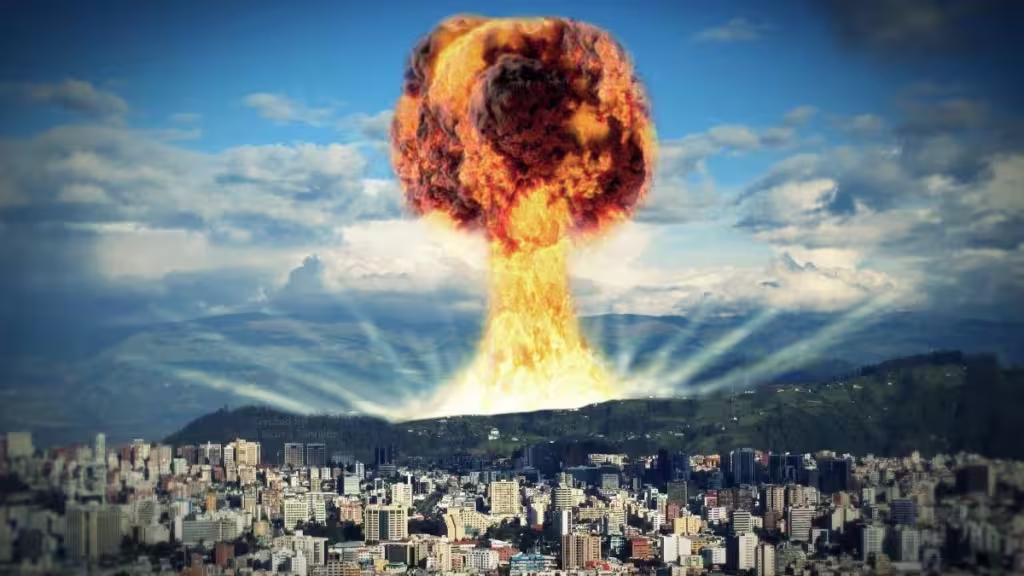
The development of atomic bombs marked a pivotal moment in human history, bestowing upon nations the capability to obliterate entire cities in an instant. This shift in the nature of conflict, from mere victory or defeat to the potential annihilation of life as we knew it, profoundly influenced people’s lifestyles and behaviors.
During the Cold War era, amidst the clash of ideologies between communism and democracy, capitalism seized an opportunity to profit from nuclear fears. In the 1950s, salespeople roamed the United States, pitching nuclear bunkers as potential saviors from atomic threats. Effective advertising often preyed on people’s fears of not having a product in times of crisis.
One particularly memorable strategy involved asking homeowners what they would do if a bomb detonated at that moment, then offering the solution of purchasing a shelter kit for peace of mind. However, owning an atomic bomb shelter raised moral questions, especially in deeply Christian societies like the United States. What should be the Christian response when neighbors sought refuge during a nuclear war?
Limited space in bunkers posed challenges, leading to varied responses from individuals. Some intended to defend their shelters fiercely, while others advocated for a more selfless approach, leaving the shelter to those in need. This moral dilemma sparked philosophical discussions in the field of nuclear ethics, exploring the ethical implications of nuclear weapons and deterrence.
One notable thought experiment proposed by Harvard law professor Roger Fisher involved placing the vital code for launching nuclear weapons in a small capsule implanted near a volunteer’s heart. The volunteer would carry a heavy butcher knife and accompany the president. The scenario aimed to bring the harsh reality of such a decision home, emphasizing the moral weight of launching nuclear weapons.
As countries possessed nuclear weapons, exploration of non-military applications became inevitable. In the United States, Project Plowshare was initiated to investigate the peaceful uses of nuclear bombs, drawing inspiration from biblical verses foreseeing a time of peace when weapons would be transformed into tools for agriculture. However, these projects often raised ethical concerns and faced opposition from environmental and safety perspectives.
The anti-nuclear movement gained momentum as individuals and organizations protested against the existence and proliferation of nuclear weapons. Figures like philosopher Bertrand Russell founded the Campaign for Nuclear Disarmament (CND), advocating for a nuclear weapons ban and urging innovative political thinking to avert disaster.
Ethically questionable human radiation experiments were conducted to study the effects of ionizing radiation, often without informed consent. These experiments extended to injecting radioactive materials into patients and administering radiation-laden food to children, raising serious ethical concerns about medical research practices.
Despite safety mechanisms, accidents involving nuclear weapons occurred, resulting in misplaced bombs and potential radiation hazards. The search for lost nuclear weapons, such as the case in Palomares, Spain, highlighted the risks associated with nuclear technology.
Nuclear themes permeated popular culture, reflecting societal concerns and anxieties. Films like “Them!” and “Godzilla” depicted the horrors of nuclear testing and the consequences of atomic weapons. Dark comedies like “Dr. Strangelove” offered satirical commentary on the absurdity of nuclear war, while films like “Threads” and “When the Wind Blows” provided stark portrayals of the devastating effects of nuclear conflict.
As we reflect on the profound impact of atomic bombs, from their inception to their ethical implications and portrayal in popular culture, it becomes evident that the legacy of nuclear weapons continues to shape our world today. It serves as a reminder of the importance of ethical considerations, responsible stewardship of technology, and the pursuit of peace in an increasingly complex and interconnected world.


GIPHY App Key not set. Please check settings